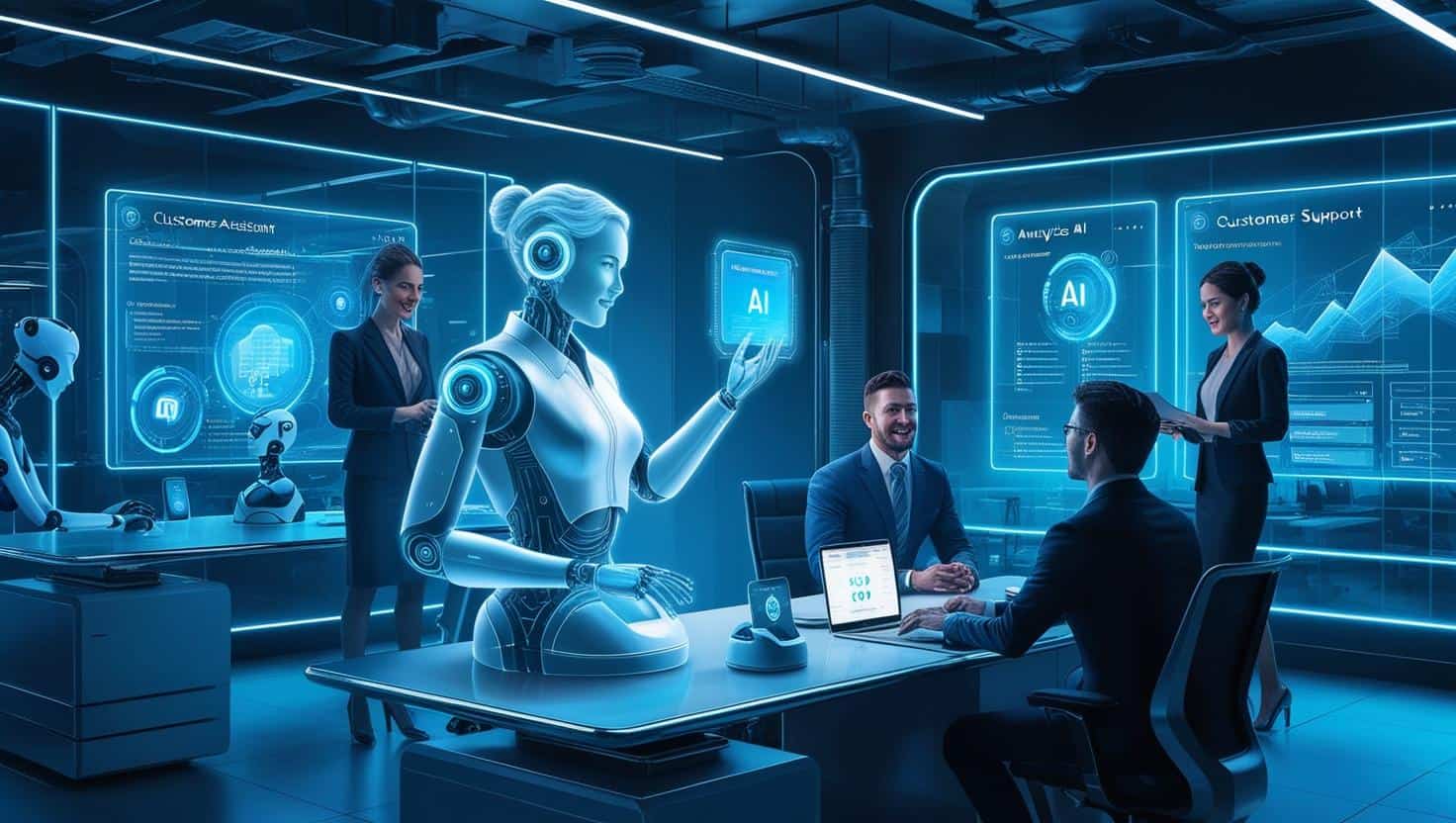Artificial Intelligence (AI) is rapidly transforming the way businesses interact with and support their customers. By 2025, AI will have a profound impact on customer success strategies, driving personalization, automation, and efficiency at unprecedented levels. From predictive analytics to AI-driven self-service solutions, the future of customer success will be more proactive, intelligent, and customer-centric.
Let’s explore 10 AI trends that will reshape customer success by 2025 and how businesses can leverage them for better customer experiences.
1. Hyper-Personalization Through AI
What’s Changing?
AI will enable businesses to deliver hyper-personalized experiences based on real-time customer data, behaviors, and preferences. Machine learning algorithms will analyze vast amounts of customer data to provide tailored recommendations, proactive support, and custom solutions.
Why It Matters?
Customers expect brands to “know them.” AI-driven personalization will enhance engagement, increase customer satisfaction, and drive loyalty by delivering content, products, and services that feel tailor-made.
Example:
AI-powered CRM systems like Salesforce Einstein will automatically suggest the best support responses, upsell opportunities, and content based on customer history and preferences.
2. Predictive Customer Analytics for Proactive Support
What’s Changing?
Instead of waiting for customers to report issues, AI will predict potential problems before they occur. Advanced predictive analytics will allow companies to detect patterns in customer behavior and proactively offer solutions.
Why It Matters?
Businesses can reduce churn and improve customer satisfaction by addressing issues before they escalate. This shift from reactive to proactive support will redefine customer success.
Example:
AI can analyze past support interactions and usage data to predict when a customer might need help, triggering automated outreach before a complaint arises.
3. AI-Powered Chatbots & Virtual Assistants
What’s Changing?
AI-driven chatbots and virtual assistants will become more advanced, handling complex queries with human-like responses. Natural Language Processing (NLP) will enable bots to understand context, sentiment, and even emotions.
Why It Matters?
AI chatbots will provide 24/7 support, reducing response times and freeing up human agents for more complex issues. Businesses will be able to scale customer support efficiently while maintaining a high-quality experience.
Example:
Tools like Drift and Intercom are already using AI to provide intelligent, conversational customer support in real-time.
4. Sentiment Analysis for Emotional Intelligence
What’s Changing?
AI will analyze customer sentiment across social media, emails, chats, and calls to understand emotions and respond accordingly.
Why It Matters?
Companies will be able to gauge customer satisfaction in real-time, respond to frustrations promptly, and improve interactions based on emotional cues.
Example:
If AI detects frustration in a customer’s email, it can escalate the issue to a human support agent for a more empathetic response.
5. AI-Driven Self-Service Solutions
What’s Changing?
AI will power self-service options like smart knowledge bases, voice assistants, and automated troubleshooting, allowing customers to solve problems on their own.
Why It Matters?
Customers increasingly prefer self-service over contacting support. AI will make self-service more efficient and intuitive, reducing customer effort and increasing satisfaction.
Example:
AI-powered search in a help center can instantly retrieve the most relevant support articles based on user queries.
6. AI-Generated Knowledge Bases
What’s Changing?
AI will automatically generate and update knowledge base articles based on real-time support interactions and user behavior.
Why It Matters?
Keeping documentation up to date is challenging. AI will ensure that customers and support teams always have access to the latest, most relevant information.
Example:
AI can analyze trending customer queries and automatically create FAQ sections or help articles to address common concerns.
7. Voice AI for Customer Support
What’s Changing?
Voice recognition and conversational AI will enable real-time, intelligent voice interactions, making phone-based customer support more efficient.
Why It Matters?
With AI handling initial inquiries, businesses can reduce call center costs while improving response times and accuracy.
Example:
AI-powered voice assistants will triage support calls, providing automated resolutions or routing customers to the right agent based on their needs.
8. AI-Powered Customer Health Scores
What’s Changing?
Customer health scores—metrics that indicate customer satisfaction and retention risks—will be enhanced with AI-driven insights.
Why It Matters?
Businesses can proactively engage at-risk customers before they churn, improving retention rates and lifetime value.
Example:
AI will analyze product usage patterns, sentiment, and engagement levels to flag customers likely to leave and trigger retention campaigns.
9. AI-Optimized Customer Feedback Loops
What’s Changing?
AI will analyze customer feedback from surveys, reviews, and social media to provide actionable insights instantly.
Why It Matters?
Instead of manually sifting through feedback, AI will help businesses identify trends, uncover pain points, and make data-driven improvements.
Example:
AI can automatically categorize and prioritize feedback, helping businesses quickly act on the most critical issues.
10. AI-Augmented Human Support Agents
What’s Changing?
Rather than replacing human agents, AI will augment them by providing real-time recommendations, automating repetitive tasks, and improving efficiency.
Why It Matters?
Human agents will be able to focus on high-value interactions while AI handles routine inquiries, leading to better customer experiences.
Example:
AI-powered assistant tools will suggest the best responses to support agents in real-time, making interactions faster and more accurate.
Final Thoughts: The Future of AI in Customer Success
By 2025, AI will have completely transformed customer success, making interactions smarter, faster, and more proactive. Businesses that embrace AI-driven strategies will gain a competitive edge, improving retention, engagement, and overall customer satisfaction.
Key Takeaways:
AI will drive hyper-personalization, predictive support, and automation.
Sentiment analysis and AI-driven insights will improve emotional intelligence.
AI chatbots, self-service, and voice assistants will revolutionize customer interactions.
AI-powered analytics will enhance retention strategies and customer health monitoring.
Customer success is no longer just about solving problems—it’s about anticipating needs, enhancing experiences, and building long-term relationships. The future is AI-powered, and businesses that adopt these trends will thrive in an increasingly digital world.
Are you ready for the AI revolution in customer success? Let’s discuss in the comments!
